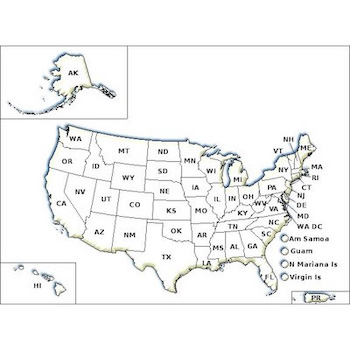Japanese beetles cause damage to ornamental, garden, and agricultural plants. They are invasive to the United States and are not found here naturally. They often find plants in nurseries, orchards, greenhouses, and field crops to feed upon. The beetles can cause serious damage to leaves, fruit, and flowers on almost 300 different plants. Japanese beetles emerge from the soil in the summer to feed on plants. Their grubs also damage lawns.
Japanese beetles are mostly found in the eastern United States. They have been found in some locations in the western United States, usually near large cities. Over $460 million dollars are spent yearly to control larval and adult Japanese beetles.
Control tips for adult beetles:
- Identify your pest to make sure they are Japanese beetles. Contact your local county extension office to help with identification.
- Control small populations of Japanese beetles by hand picking. Check plants regularly, as they are very mobile insects.
- Larval beetle control may have little effect on the number of adults feeding on nearby plants.
- Plant resistant trees, like dogwood, pine, magnolia, holly, ash, and red maple.
- Avoid planting or replace preferred food sources such as Japanese maple, black walnut, elm, stone fruit, roses, and hibiscus.
- Allow lawns to go dormant in the summer (specifically late June - July) to limit larval survival.
- Infrequent, deep watering of plants and trees may limit breeding for the beetles.
- In the United States, Japanese beetles lack a natural predator to control them. Nematodes, certain bacteria, and some parasites may be effective biological control. Talk to an expert about local control options.
- Be aware that traps might attract Japanese beetles to your yard. If using traps, keep them far away from garden and landscape plants.
- Fallen and diseased fruit may attract the beetles. Remove fruit from the area quickly.
- If you choose to use a pesticide, always follow the label. Try a lower toxicity product first.
- Some cities use public treatments to fight new infestations. If treatments are scheduled in your area, call NPIC at 800-858-7378 for questions about risk.
If you have questions about this, or any pesticide-related topic, please call NPIC at 800-858-7378 (8:00am - 12:00pm PST), or email us at npic@oregonstate.edu.



